
Dr.
Kunzang Chosdol
Others
Affiliation
Professor
Department of
Biochemistry
Contact
Email :
kunzangchosdol[at]yahoo[dot]com
Phone :
91-11-26549235
Address: Room no 4007,
4th Floor, Convergence Block,
Department of Biochemistry,
All India Institute of medical Sciences, New Delhi
Academic Details
| Degree | Subject | University/ Institution | Year |
|---|---|---|---|
| PhD | Biochemistry | AIIMS, New Delhi | 2007 |
| MD | Biochemistry | AIIMS, New Delhi | 1999 |
| MBBS & Internship | Medicine | Bundhelkhand University, Jhansi, UP | 1995 |
Positions held:
| Position | Department | University/ Institution | Dates |
|---|---|---|---|
| Professor | Biochemistry | All India Institute of Medical Science, New Delhi | 2014- Till date |
| Additional Professor | Biochemistry | All India Institute of Medical Science, New Delhi | 2010-2014 |
| Associate Professor | Biochemistry | All India Institute of Medical Science, New Delhi | 2007-2010 |
| Assistant Professor | Biochemistry | All India Institute of Medical Science, New Delhi | 2003-2007 |
| Senior Demonstrator | Biochemistry | All India Institute of Medical Science, New Delhi | 2000-2003 |
Notable Awards and Society Memberships
- AIIMS Excellence Research Award- 2015 (3rd Prize) in recognition of the outstanding publication “A combined gene signature of hypoxia and Notch pathway in human glioblastoma and its prognostic relevance”
- ISNO Presidents Award -2014 for the best Clinician Researcher in Basic Neuro-Oncology, awarded during 6th Annual Conference of the Indian Society of neuro-Oncology (11-13 April, 2014) at Lucknow.
- AIIMS Excellence Research Award-2013(Third prize) in recognition of the outstanding publication “FAT1 acts as an upstream regulator of oncogenic and inflammatory pathways, via PDCD4, in glioma cells”.
- DSTFAST TRACK Scheme for Young Scientist: 2010 and 2003.
- International Travel Grant from AIIMS to present my work in conference -IXth European Congress of Neuropathology, Greece. May, 2008
- INSA (Indian National Science Academy) Travel Support to attend the conference -IXth European Congress of Neuropathology, Greece. May, 2008
- Travel Fellowship by the MNBWS organizers (USA) to present my work during symposium - MNBWS; 50 years on: From the Double helix to Molecular Medicine, Miami, Florida. 2003.
- CSIR International Travel Grant to present my work in a symposium - MNBWS; 50 years on: From the Double helix to Molecular Medicine, Miami, Florida. 2003.
Patents:
1. Indian Patent Application No. 1400/DEL/2013: Sinha S, Khan I, Zakaria MK, Chosdol K, Chattopadhyay P for the invention entitled “Placental like Alkaline Phosphatase (PLAP) Promoter Mediated Cell Targeting”
2. Indian patent, PCT-1282 (PCT/IB2013/05008): Chosdol K, Dikshit B and Sinha S: For the “Use of FAT1 gene and its products including RNA, protein and the derivatives of the same, as suitable molecules for either inflammation or cancer and the associated phenotype and the processes linking the same and also as a biomarker for the above processes”. International patent filed, PCT in process.
Society Memberships:
- National Academy of Medical Sciences (NAMS)
- Indian Association for Cancer Research (IACR)
- Vice-President (2016-2018)
- ― Treasurer (2014-2016)
- Indian Society for NeuroOncology (ISNO)
- Association of Clinical Biochemists of India (ACBI)
- Society for NeuroChemistry India (SNCI)
1.Dr. Khushboo Irshad, PhD - DST-SERB Young Scientist
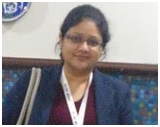
Dr. Khushboo Irshad completed her PhD at the Department of Biochemistry, AIIMS, New Delhi, in 2013 under the supervision of Prof. Kunzang Chosdol, Prof. Subrata Sinha and Prof. P. Chattopadhyay. Her thesis involved the study of correlation between hypoxia and Notch signaling pathway in glioblastoma and identification of a combined gene signature to predict the survival of glioblastoma patients. Her work derived a key prognostic molecular cluster characteristic of the Notch pathway response in hypoxic glioblastoma tumors and gliomasphere cultures (PLoS One (2015); 10(3):e0118201; felicitated with AIIMS Excellence Research Award-2015 that was awarded to Prof. Chosdol). Presently, her research focuses on deciphering the role of FAT1, a novel gene implicated in glioma, in regulating the hallmark features of glioma like stemness and invasiveness, as well as in maintenance of the balance between pro-inflammatory and anti-inflammatory signaling in glioma. She was awarded the DST-SERB Start-Up Research Grant in March 2016, for the project aimed at elucidation of FAT1 function in modulating pro-inflammatory signaling and anti-inflammatory / immunosuppressive signaling pathways in glioma.
2.Dr. SRINIVAS H, MD,DNB (PhD)
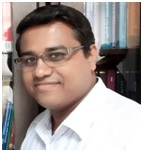
Dr. Srinivas H done MBBS from Bangalore Medical college, Rajiv gandhi university of health sciences Karnataka and MD from MAULANA AZAD Medical College, Delhi university, New Delhi. His MD thesis was on procalcitonin, IL 6, TNFalpha and urinary isoprostane in sepsis patients under the guidance of ex HOD and director professor Dr TK Mishra. He has completed one year of senior residency in PGIMER, Chandigarh and two year of senior residency in AIIMS, New Delhi. He has published his work in national and international papers in the various field of sciences and medical education. He is working now on pathway analysis of interaction between FAT1 with p53, HIF 1alpha and beta catenin in glioma as a PhD research scholar under the guidance of Dr KUNZANG CHOSDOL and Dr SUBRATA SINHA. He has done DNB from Diplomate of National Board in biochemistry and certification course in industry program, clinical trials and administration from bioinformatics institute of India. He is a Life member of Association of Medical Biochemistry of India since 2008
Life member of Society for Tissue Engineering and Regenerative Medicine (India), Thiruvananthapuram since 2010 and Indian Association of Cancer Research.
3.Ms. Chitrangda Srivastava - PhD scholar
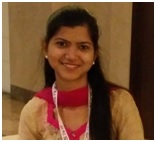
Ms. Chitrangda Srivastava is currently in her final year of PhD. She is working on the characterization of FAT1 gene promoter. In addition, she is analyzing the functional role of FAT1 with EMT and stemness in hypoxic glioma. She completed her M.Sc. from the department of Biochemistry, AIIMS, in 2012. Her M.Sc. thesis involved the study of the role of Notch signalling pathway with EMT and stemness in pathogenesis of glioma under hypoxia. She has won several awards during her PhD tenure, including Best Oral Presentation Award in ACOS-2016, European Young Scientist Travel Award-2015, G.P. Talwar Foundation Travel Award-2015, etc. She is an Associate Member of the American Association of Cancer Research since 2011 and an Associate Member of the European Society of Neuro-Oncology since 2016.
4.Nargis Malik, PhD. Scholar
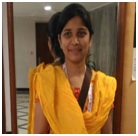
Nargis Malik completed her M.Sc. in toxicology from Meerut University, Currently she is a second year PhD. student working on the “Role of FAT1 gene on the regulation of microRNAs in glioma”
5.Ms. AKANKSHA KANOJIA, M.Sc. student
Akanksha Kanojia has completed her B.Sc.(H) in Biomedical Sciences from Acharya Narendra Dev College, University of Delhi in 2016. She is currently pursuing M.Sc. in Biochemistry from All India Institute of Medical Science, Delhi under the guidance of Dr. Kunzang Chosdol.
Mukesh Kumar (Laboratory Attendant Gr. II)
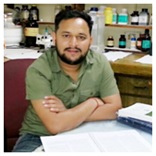
Mukesh Kumar is working as a Laboratory Attendant Gr.-II in the Department of Biochemistry since August 2011. He help in the research related work for M.Sc., Ph.D. and M.D. Students in Research Laboratory of Dr. Parthaprasad Chattopadhyay & Dr. Kunzang Chosdol. His nature of duties includes, culture work, DEPC treatment and assistance of UG/PG examination.
Research Focus of the Lab :
- Study of the role of the FAT1 gene in human glial tumorigenesis: We had identified the FAT1 gene (A Human Homologue of Drosophila Tumor Suppressor Gene fat) and its involvement in human glial tumors. Using RAPD-PCR technique, we have identified a consistently altered locus of chromosome 4q34-q35 which was found to be altered in ~ 50% of the tumors studied. We observed high LOH at the same locus. Our study is the first report of the involvement of FAT1 gene in glioma (BMC Cancer, 2009;9:5). On functional study in cell lines, we found FAT1 to have an oncogenic role in glioma. On knocking down of FAT1 expression by siRNA system in glioma cell lines, we found decreased cell migration and invasion, and decreased expression of various inflammatory modulators like COX2, IL1β, IL6 etc. FAT1 is found to be acting as an apical regulator acting via JNK/AP1 pathway for mediating both cancer cell migration & invasion as well as regulating the expression of various inflammatory modulators in glioma cells. Ours is the first report showing a novel role of FAT1 in regulating both cancer and inflammation in glioma (Oncogene, 2013;32:3798-808). A positive correlation between FAT1, HIF1α, EMT and stemness markers expression has been observed in GBM tumor samples as well as in glioma cell lines maintained under severe hypoxia. A novel role of FAT1 in positively regulating HIF1α via EGFR/AKT/mTOR signalling pathway in hypoxic glioma cell lines has been detected (IJC, 2016, Aug).
- Study of the role of Notch signaling under hypoxia in Glioblastoma: We analyzed the molecular link between the hypoxia markers and the Notch signaling molecules in primary GBM by real time PCR and analyzed their correlation. A molecular signature of hypoxia and Notch genes has been identified indicating the prognostic status of GBM patients (PLoS ONE, 2015;10(3):e0118201).
- Heterozygosity status of 1p and 19q and its correlation with p53 protein expression and EGFR amplification in patients with astrocytic tumors (Cancer Genet Cytogenet. 2010, 198,126-34). Have conducted research on the role of recombinogenic sequences on the genomic fluidity in gliomas (Mutation Research, 2001, 484: 53-59) and mutator hypothesis (BMC Cancer, 2007,7:190). We have also shown the role of alu mediated recombination in generating genomic instability under sublethal cytotoxic pressure, a possible mechanism of drug resistance (Int J Cancer, 2005;117:683. Cover Page Article).
- Another aspect of our work is to look at genetic polymorphism in ethnic groups and also their linkage with disease states. The status of p53 codon 72 for Arginine/proline allele polymorphisms in different ethnic groups (Ladakhi, Kashmiri, Punjabi, Rajasthani Gujjar and Rajasthani Rajput) in North India was studied by PCR-RFLP technique. We found significantly increased frequency of Argnine allele in the Ladakhi population only. The results indicates that HPV induced cervical carcinoma has no effect on the inheritance of this supposed “susceptibility” allele (Curr. Sci. 2002, 82;1253. Cover page article). We are studying the polymorphisms in folate metabolizing enzymes and their correlation with the levels of homocysteine, folate and Vitamin B12 in normal as well as glioma patients.
- We have collaborated in the following studies:
- The role of β-catenin/WNT signalling in the pathogenesis of eyelid sebaceous cell carcinoma (SbCC). Epigenetic inactivation could contribute to the reduced disease-free survival in eyelid sebaceous gland carcinoma (Br J Ophthalmol, 2011;95:284, Br J Dermatol, 2012;167:583,Br J Dermatol, 2015;173:811).
- The ionotropic glutamate receptor kainate3 (GRIK3) Ser310Ala (T928G) polymorphism and schizophrenia in the Indian population. We, for the first time, showed the prevalence of this polymorphism and its association with schizophrenia in the Indian population (World J Biol Psychiatry. 2009, 10:330-3).
- The promoter methylation status of MGMT (O6-methylguanine–DNA methyltransferase) gene and benefit from Temozolomide in Glioblastoma patients (Neurosurgery 2010;67:1681-91), analyzed microsatellite markers on chromosome 1p and 19q in gliomas especially Oligodendrogliomas (Cancer Genet Cytogenet. 2010, 198:126-34, DiagnMolPathol, 2011;20:40-7).
Recent publications:
- Madan E, Dikshit B, Gowda SH, Srivastava C, Sarkar C, Chattopadhyay P, Sinha S, Chosdol K (2016) FAT1 is a novel upstream regulator of HIF1α and invasion of high grade glioma. Int J Cancer. 2016 Aug 18. doi: 10.1002/ijc.30386. [Epub ahead of print]
- Jalota A, Kumar M, Das BC, Yadav AK, Chosdol K, Sinha S (2016) Synergistic increase in efficacy of a combination of 2-deoxy-D-glucose and cisplatin in normoxia and hypoxia: switch from autophagy to apoptosis. Tumour Biol. 2016 Jun 15. [Epub ahead of print]
- Bhardwaj M, Sen S, Sharma A, Kashyap S, Chosdol K, Pushker N, Bajaj MS, Bakhshi S (2015) ZEB2/SIP1 as novel prognostic indicator in eyelid sebaceous gland carcinoma. Hum Pathol. 2015 Oct;46(10):1437-42
- Irshad K, Mohapatra SK, Srivastava C, Garg H, Mishra S, Dikshit B, Sarkar C, Gupta D, Chandra PS, Chattopadhyay P, Sinha S, Chosdol K (2015) A Combined Gene Signature of Hypoxia and Notch Pathway in Human Glioblastoma and Its Prognostic Relevance. PLoS One. 2015 Mar 3;10(3):e0118201
- Jayaraj P, Sen S, Sharma A, Chosdol K, Kashyap S, Rai A, Pushker N, Bajaj M. (2015) Eyelid sebaceous carcinoma: a novel mutation in lymphoid enhancer-binding factor 1 (LEF1). Br J Dermatol. 2015 Sep;173(3): 811-4
- Chingkheilemba M, Kumar U, Chosdol K, Das N (2014). Lack of role of endothelial nitric oxide synthase gene Glu298Asp polymorphism in rheumatoid arthritis among Asian Indians. IOSR Journal of Dental and Medical Sciences (IOSR-JDMS) 2014; 13(4): 25-28.
- Dikshit B, Irshad K, Madan E, Aggarwal N, Sarkar C, Chandra PS, Gupta DK, Chattopadhyay P, Sinha S, Chosdol K (2013). FAT1 acts as an upstream regulator of oncogenic and inflammatory pathways, via PDCD4, in glioma cells. Oncogene. 2013 Aug 15;32(33):3798-808.
- Agarwal S, Sharma MC, Jha P, Pathak P, Suri V, Sarkar C, Chosdol K, Suri A, Kale SS, Mahapatra AK, Jha P (2013). Comparative study of IDH1 mutations in gliomas by immunohistochemistry and DNA sequencing. Neuro Oncol. 2013 Jun;15(6):718-26.
- Chosdol K, Misra A, Puri S, Srivastava T, Sarkar C, Mahapatra AK and Sinha S (2009) Frequent LOH and altered expression of tumor supressor FAT identified by RAPD in astrocytic tumors. BMC Cancer 9:5
- Srivastava T, Chosdol K, Chattopadhyay P, Mahapatra AK, Sarkar C, Sinha S (2007) Frequent loss of heterozygosity encompassing the hMLH1 locus in low grade astrocytic tumors. J Neuro-oncol. Feb;81(3):249-55.
Research Funding Agencies: DST; DRDO; DBT; IMRG (AIIMS).






